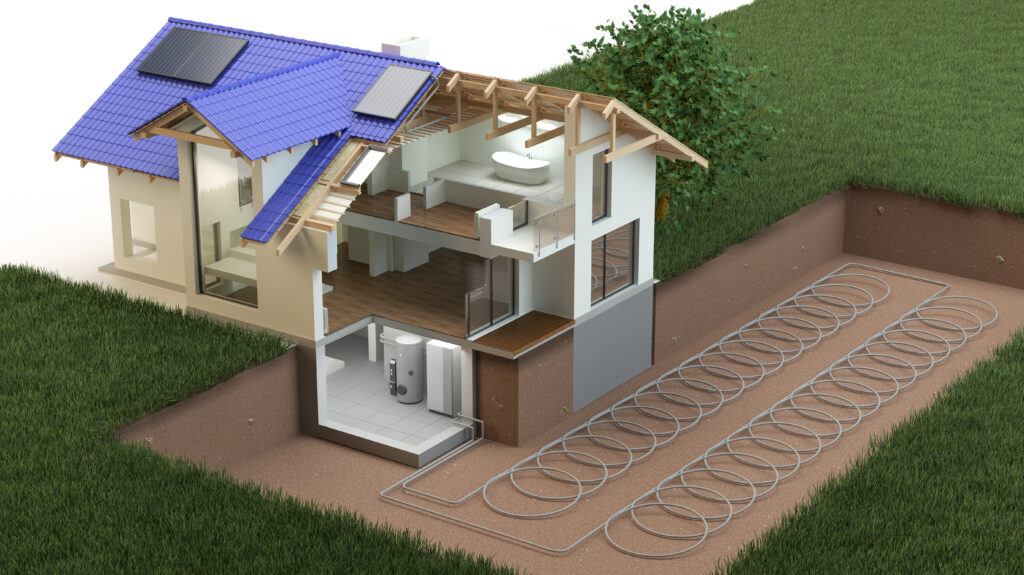Energy Efficiency
Energy Efficient Buildings

The largest energy use in a building is to heat and cool the air and water used. By using energy efficient heat pumps, water tanks, tankless water heaters, and cooling units, energy can be conserved. Energy efficient windows and proper insulation can also help in this regard. Smart home strategies such as turning energy off or down during vacation or overnight, zoning areas for heating and turning devices off when not in use can all conserve energy.
Geothermal Heating

Geothermal heating and cooling uses the Earth as a natural heat sink to pump air through. The earth is naturally cooler than the surface during summer and warmer in the winter. Air is pumped through a looping pipe system to contact with the ground or a lake and then sent back to the building. Energy savings can be over 50%.
Gas Mileage

Just buying a more efficient car can drastically decrease one’s carbon footprint. Going from a 15 miles per gallon vehicle to a 30 miles per gallon vehicle yields the same savings as going from 30 miles per gallon to zero emissions. Electric vehicles have a smaller carbon footprint than combustion engine vehicles even when plugged into a fossil fuel grid.
Modern semi-trucks with better aerodynamics and newer engines can add quite a bit of mileage versus older gas guzzlers. Until the grid is much more renewable focused the benefit of electric trucks and buses is marginal.